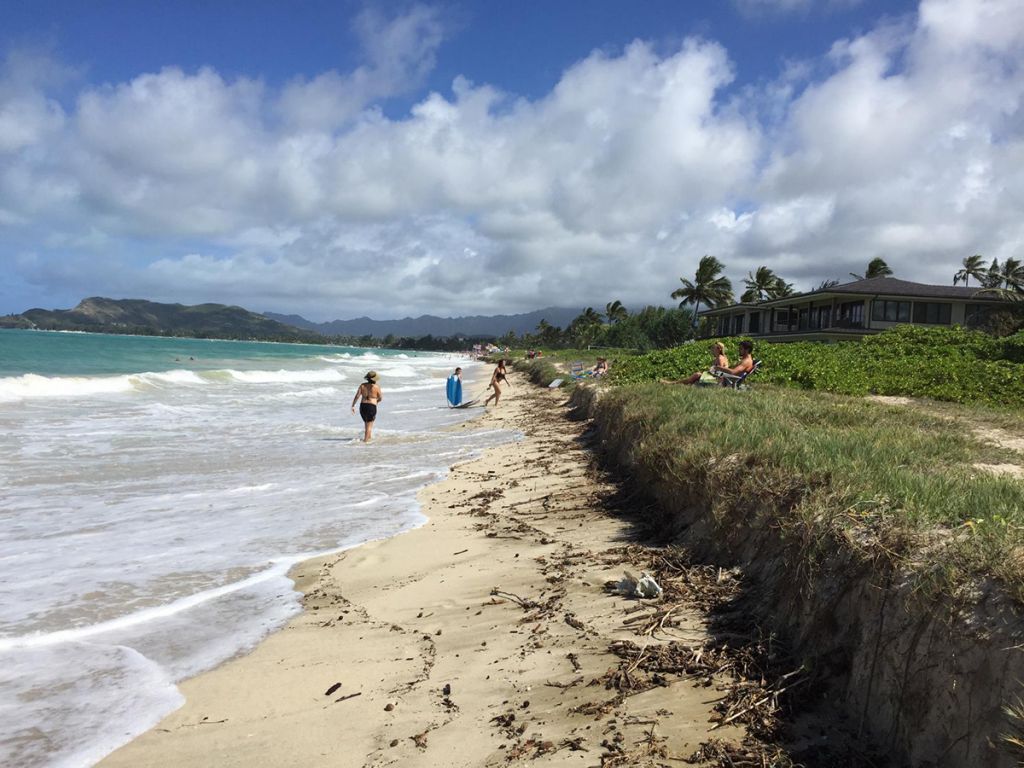Estimating the economic value of coastal tourism under climate change using revealed mobile phone network data
PRINCIPAL INVESTIGATOR: Nori Tarui
Co-INVESTIGATORS: Takahiro Tsuge, Takahiro Kubo
Sea Grant Graduate Fellow: Albert Yee
Research Track: Island Resilience and Sustainability

Tourism is one of the leading drivers of economic activity in Hawaiʻi, with beaches and ocean recreation making up an integral part of that experience. However, coastlines and ocean recreation are increasingly, and negatively, being affected by climate change and sea-level rise. Because of these effects, the choice set of recreation sites in Hawaiʻi is shifting over time, as coastal environments experience erosion and flooding that affect their suitability for recreation. What is not known well, is the value of coastal and outdoor recreation over time under different climate change scenarios. Some goods and services that are not traded in conventional markets, such as natural resources, do not have an apparent price, and we cannot make clear trade-off decisions as we would any other resource. To fill this gap, it is necessary to couple the systems of recreational demand and physical changes in the environment that affect the supply of recreational opportunities.
For this project, the research team plans to take stock of the geomorphological (erosion) impacts on the shoreline and recreation sites across Hawaiʻi, to model how existing patterns of economic welfare benefit, that flow from recreation use, change as a result, and to predict future economic welfare shifts as the physical environment continues to change. Results should provide insight on: recreation site visitation patterns of residents and visitors; how sites are substituted when others are eliminated and/or face degradation in quality; the value of recreation time; defensible economic values for beaches and recreation sites across the state; and how these values change over time with different sea-level rise and mitigation scenarios.

